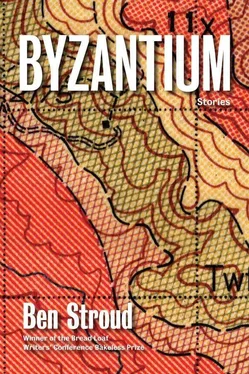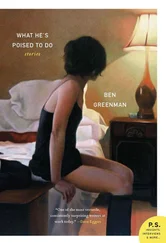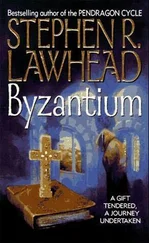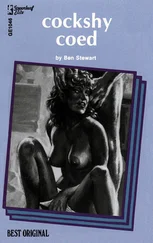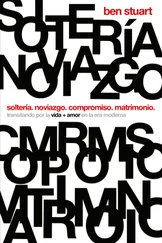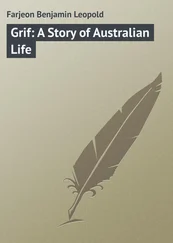BURKE DIDN’T RETURN TO THE CALLE DEL SOL, where the old mansion that housed his rooms stood, until past one. The midday heat had already blanketed the city, and after a light lunch he isolated himself in his bedroom and rested. At three he woke to the call of a plantain vendor in the street below. The city was not yet stirring — the plantain vendor’s cry was the only noise that came from outside — and he moved to his study and remained there while the heat lifted. The effort to quash any notion of himself as a slave hunter had failed and he tried to compose a letter to Don Hernán, regretting that he could not finish the case and begging the don that it would not cost him his esteem, but he could not find the right words. No matter the phrasing, the don would be disappointed and insulted. Besides, Burke had already given part of his fee to Fernandita to pay off the butcher. He decided he had no choice now, and when his clock struck four forty-five he rose and left his rooms and went out the courtyard gate to keep his appointment with the don’s two slaveboys.
The sky was high and blue, and, with the worst of the day’s heat finally past, the city had spilled once more into the streets. Gentlemen in broad-brimmed straw hats walked together speaking of business, Capuchins delivered alms, a company of soldiers marched in seersucker uniforms, a lottery ticket seller cried out that his numbers were blessed. Burke had to pass through this throng as he crossed the Plaza de Armas, skirting Ferdinand VII on his pedestal, then going along the university walls and into the Calle O’Reilly. There he found the street, as usual, blocked with volantas. Pale ladies shaded by umbrellas sat in the carriages while shopkeepers came out of their shops to present them with their wares. Burke picked his way around them and after a block found the two boys waiting for him by the sweetshop. They were dressed in the don’s blue livery and engrossed in a game of punching each other in the arm. Burke introduced himself, then took them aside from the bustle and asked them to show him where Marcita had disappeared.
Miércoles, who was the older of the two boys, pointed toward a row of shops past the Calle Habana intersection. “She tole us to get some oysters, so we were loadin up the baskets, and when we done, she was gone.”
Domingo, the smaller and darker skinned of the two, nodded.
“And you saw nothing?”
Miércoles said he’d been watching the road while he held his basket and hadn’t seen her come back past. He thought she’d gone farther up the street.
Burke put his hands on the boys’ shoulders and walked them closer to the shops. The first shop off the Calle Habana intersection was the oyster stall, and next was the narrow stall of the Gallitos brand’s tobacco shop, and after that a bookseller’s. A corpulent, red-bearded fellow was dressing the Gallitos window with rolls of cigarettes. The prices were absurdly high, even for Havana standards, and the shop looked empty; Pedroso y Compañia, manufacturers of the Gallitos brand, had gone bankrupt two months before, and it appeared the new owners would do no better. Next door, however, the bookseller was doing a brisk business selling copies of David Copperfield. He sat beside his crate and handed copies up to the ladies who rode past, catching their coins in his palm. Burke asked what the boys had done after Marcita disappeared, and Miércoles told him that they waited a half hour then returned to the don’s villa on the horse trolley.
“And you didn’t worry?”
“Not on Tuesdays,” Domingo said.
Miércoles glared at Domingo, and Domingo clapped his hand over his lips.
“Ah, so she met someone on Tuesdays,” Burke said. “Who?”
Miércoles looked at his feet. “Her love man,” he said. Then he pinched Domingo until the smaller boy yelped.
Burke had the boys lead him to the lover’s rooms. They took him up the block to the Calle Compostela, turned right and past the Church of Santa Catalina, then walked north two blocks, then turned again, toward the city walls. They stopped finally before a dingy, mud-daubed building in the Calle Villegas. Burke asked which room was the lover’s, and the boys pointed toward a window on the top floor, the one farthest to the right. Leaving the boys in the street, Burke walked into the courtyard, up the stairs, and onto the interior veranda, found the lover’s door, and knocked. There was no answer. Beside the door someone had tacked a piece of paperboard that read Enrique López, Merchant. A grand title, Burke thought, for one who lived in one of the poorest buildings in the city. He waited and knocked again. Still no answer. Burke wasn’t sure what to do. At last he took his card, wrote Marcita’s name on it, and slid it under the door. Then he came out and walked the boys back to the sweetshop, where he bought them sugar sticks and sent them on their way.
THE CASE, it seemed, was shut. Marcita had absconded with her lover. That was an explanation he could give Don Hernán. Tomorrow morning he could send him the man’s name. Surely that would be enough. He’d refuse to track the two further, to clamp Marcita in irons.
He sat in a café and drank a horchata. As he sipped the cool drink and watched the street, he remembered what his mother had told him the last time he saw her. Burke had been brought up in the plantation house by his father, taught to read the books in the library, and allowed to range freely over his father’s land with his own gun to shoot birds in the marshes. There was no white wife — Burke’s father had been a bachelor — and so Burke’s mother was allowed to come spend evenings with him every month or so. “You make me proud,” she’d told him, pulling on the sleeves of his little velvet coat. He was eleven. “And you’re gonna keep making me proud. You’re gonna grow up and do good and be good to people.” She’d died two weeks later, when fever spread up the bayous.
When he’d stumbled on detective work, he’d thought again of his mother’s words. It was all he’d wanted, to do good, and here was his chance. He eased troubled minds, rooted out wrongs.
Later, hours past supper, Burke lay down to sleep and found he couldn’t. A thought had come to him and refused to leave. Sending the lover’s name to the don — would it be any different from putting the irons on Marcita himself?
THE NEXT MORNING, Fernandita brought him coffee and a buttered roll and set them on his desk. As he ate the roll, he watched the tangle of masts outside his window and considered whether he could write the letter. Fernandita was scraping ash out of the grate.
“What sort of man must I be,” he asked her, “to trap this girl for pay?”
He did not typically consult Fernandita on matters beyond the day’s marketing, but he was desperate. He’d barely slept, his mind brimming with the image of himself delivering a chained Marcita to the don’s office.
“A practical man,” Fernandita began, but was interrupted by the cry of one of the city’s rumor sellers in the street below. In the man’s singsong Burke had caught the word murder. He leaned his head out the window, spotted the seller, a beggar in a tattered hat. The man had started up his cry again when Burke whistled and asked, “What murder?”
The beggar looked up. “Toss me a roll and a real and I’ll tell you.”
Burke did so, and the man said some soldiers had been drinking in a field outside town when they found a slave’s body.
“Where?” Burke asked.
“Between the Paseo de Tacón and the railroad.”
“Man or woman?”
The beggar shrugged.
Burke crossed the study to the door, and once in the street he hailed a carriage, a hack with a negro driver. It was a stretch, but it gave him an excuse to delay writing the don. “Take me to the Paseo de Tacón,” Burke said, and the driver began weaving out of the city, moving his carriage skillfully through the crowds.
Читать дальше
